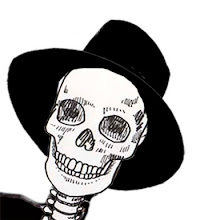For a couple of years, when my youngest
son was just two or three years old, I was in the habit of keeping a mannequin
in the back seat of my car. Called
her Baby Doll. Sat her up like she was one of the
family. Strapped her in with a
seatbelt for the ride. Changed her
clothes once a week to keep a fresh attitude. She usually wore a cool hat, tilted just so, and dark
glasses during the day.
Sometimes my son would crawl up into the back seat and snuggle himself up in her arms. It was pretty cute. Sometimes he’d fall asleep there. I often wondered what he must have been thinking. Baby doll was a pretty prominent part of our family at the time. I realized many years later that the only actual full family portrait we have is one that includes Baby doll. My wife and I, our two sons, and Baby doll sitting on the sofa, each of us looking straight ahead wearing sunglasses and matching expressions.
Sometimes my son would crawl up into the back seat and snuggle himself up in her arms. It was pretty cute. Sometimes he’d fall asleep there. I often wondered what he must have been thinking. Baby doll was a pretty prominent part of our family at the time. I realized many years later that the only actual full family portrait we have is one that includes Baby doll. My wife and I, our two sons, and Baby doll sitting on the sofa, each of us looking straight ahead wearing sunglasses and matching expressions.
I was working for a corporation at the
time, driving ten miles to work each day.
Corporate life did not agree too well with me. The mannequin was a nice distraction from the seriousness of
the workday. Fellow commuters
would see the mannequin in the back seat, slow down and wave as they went by,
with a knowing smile and a ‘Thanks for the laugh’ look in their eyes. Coworkers, and others from the office
complex would make a point of taking a little break out in the parking lot
periodically to see what Baby doll would be wearing during that particular
week. I think they understood that
in order for me to maintain my sanity in a suit and tie, I must occasionally
welcome a little insanity into my own life. There must have also been some vicarious indulgence for many
of the uninitiated, who were, themselves, bound by parameters they were
struggling against.
Baby doll was not a profound experience
for me by any means, but in a corporate, conformist, and stifling world she did
serve as a connection to the idea of personal liberation, an important, and
necessary, connection for me at that particular time of my life.
And she did put smiles on the faces of a
lot of people who would have otherwise not been smiling. For this I am grateful to her. And I remember her fondly.

